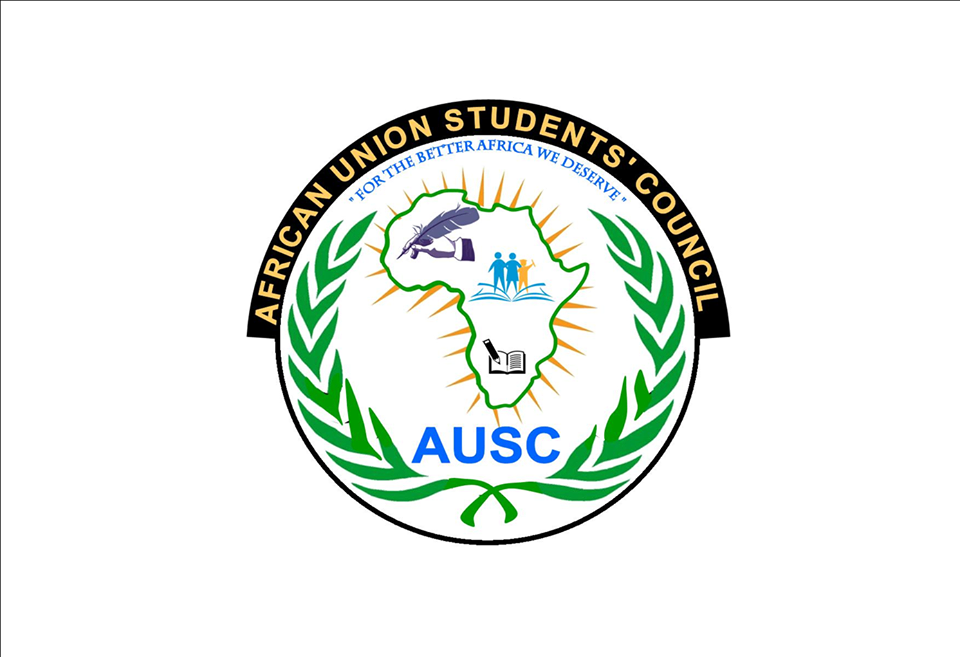The AUSC President's Office Wishes to share an invitation to all AUSC Leaders,Advisors, Members and Friends to participate in the Making It Happen: Agenda 2063 Citizen Summit Theme "The Citizen Power to Build a Self-Reliant Africa." CLICK HERE To Fill An Online Form to attend the 1st All African First Youth Congress.
THE LINK:https://goo.gl/forms/
THE LINK:https://goo.gl/forms/
Hello,
this is the Executive Summary of the historic Summit. The Executive
Summary captures the subsequent contents.
The full Concept Note will be completed today, Jan. 7, 2017, after
feed-back from some Ministries of Foreign Affairs, sub-national Diaspora
Offices and organizations in Africa.
You may comment by sending your information to:
"An Integrated, Prosperous and Peaceful Africa, driven by its people, and representing a dynamic force in the global
arena."
Making It Happen: Agenda 2063 Citizen Summit
African Citizenry in Africa and the Diaspora for Common Development
And the Casablanca African Legacy Gala
Popularizing Agenda 2063: A Living and Dynamic Framework for Africa's Development:
http://conta.cc/2j5Rtwy
New York, USA
September 22-24, 2017
During the UN General Assembly
|
Theme "The Citizen Power to Build a Self-Reliant Africa."
"Capacity
development is the process through which individuals, groups and
organizations, and societies deploy, adapt, strengthen, and maintain
the capabilities to define, plan and achieve their own development
objectives on an inclusive, participatory, and sustainable basis."
Presented to the African Union Organs
AU Member States and Local Governments
Civil Society Institutions; Multilateral Institutions
Research by Evelyn Joe in collaboration with Agenda 2063 Theme Organizers
African Union Vision is: "an
integrated, prosperous and peaceful Africa, driven by its own citizens and representing a dynamic force in the global arena."
In 2015, African nations adopted the historic, transformative and harmonizing roadmap for Africa's economic, social and
political developments. Known as Agenda 2063,
the framework
is implemented in Five Ten-Year Strategic Phases at National level
that includes sub-national developments, Regional and Continental
levels. The First Five Ten-Year Implementation Plan is from 2014 to
2023. There are mid-term reviews after every five years.
Attached is a Briefing Kit:
http://conta.cc/2icwnbZ
In March 2014, before the Agenda 2063 framework was finalized, the African Union addressed the post-2015 UN Sustainable
Development Goals (Vision 2030) in the Common African Position under Six Pillars:
http://conta.cc/2inmiJo 1)
Structural Economic Transformation and Inclusive Growth; 2) Science,
Technology and Innovation; 3) People centered Development; 4)
Environmental Sustainability, Natural Resource Management
and Disaster Risk Management; 5) Peace and Security; 6) Finance and
Partnerships.
Agenda 2063 is anchored on Seven Pillars of Aspirations and 20 corresponding Goals with Priority Areas; Process actions
and Milestones, and Indicative Strategies that must be considered to achieve success by a period.
http://conta.cc/2lgzTEU . All the
post-2015 SDGs are addressed in more details under the relevant Seven
Pillars of Aspirations. Therefore, the SDGs are not independent of
Agenda 2063.
Member
States and Regional Economic Communities (RECs) are expected to ensure
that their outcomes/results are comparable
through harmonization and adherence to continental guidelines with
respect to the goals, target and performance indicators, measurements,
methodologies for data collection and analysis. Agenda 2063 has
fast-tracked programs that are included in the Priorities:
http://conta.cc/2lgkCE9
. Learning from past lessons, building on previous frameworks and
progress, and strategically utilizing opportunities in the short,
medium and long term, Agenda 2063 is "a global strategy to optimize the use of Africa's resources for the benefits of all Africans."
Numerous
conferences have addressed the role of the civil society in development
and Diaspora engagements in general.
However, there has been little or no coordinated effort to align the
relevance with Agenda 2063 and sensitize an inclusive African citizenry
on the most profound framework in the history of Africa that is expected
to address all aspects of life, including
the future united Africa. The awareness, especially at grassroots
level, is negligible or absent. At a time when the clarion call by
African leaders cannot be louder for Africa's self-reliance, the benign
neglect can be redressed by going beyond government-to-government,
multilateral institution discussions and dependency foreign experts to
involve cross sections of the African civil society in owning and
driving the process.
In
order to drive the process, the African citizenry must be informed and
active, which is essential for the actualization
of each of the Goals. At subnational levels, working with local
governments, NGOs in the non-profit or for-profit sectors, sectoral or
cross-sectoral groups can participate in alignment of national visions
to Agenda 2063; preparation of medium term plans
based on Agenda 2063; implementation; monitoring and evaluation at
the grassroots level.
The Concept Paper is a reference document of
Making it Happen: The Agenda 2063 Citizen Summit
that is designed to bring together the African citizenry in Africa and
the Diaspora for common understanding
of Agenda 2063; document contributions, including in the informal
sector; explore opportunities and redress challenges to 'African
ownership' of the process objectives with evident capacity in this
unprecedented popularization of Agenda 2063.
The
Concept Paper highlights the roles of target participants to shed
light on the crucial relationship between interest
in programs, capacity for implementation, and the expected outcomes.
The detailed sessions will be developed by theme or sectoral committees
based on the Goals. Participants may address developments in each of the
Five Regions in Africa, which will also support
regional integration.
Ultimately,
the Summit will promote effective engagement and accountability
strategies on how public-private partnerships
can use best practices to sensitize and incentivize the resourcefulness
of the African citizenry in the Diaspora and in Africa on common
purposes to advance the holistic welfare of local communities, national
and regional growth and the African society as
a whole.
,,,
|
|||
|




























0 comments:
Post a Comment